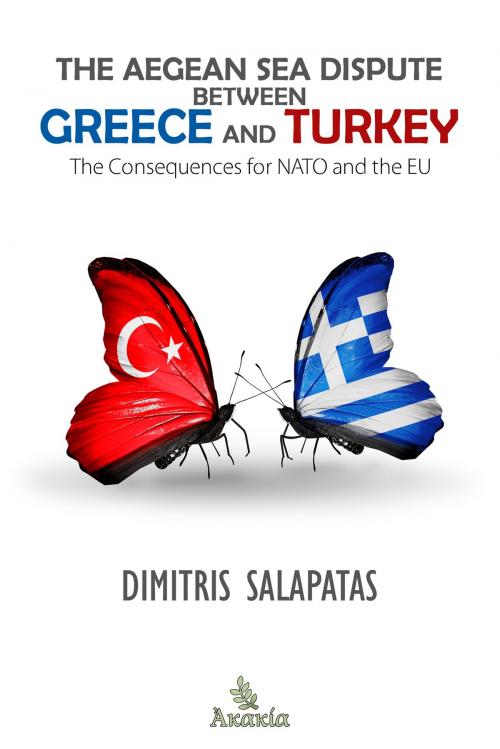The Aegean Sea Dispute between Greece and Turkey
The Consequences for NATO and the EU
Nonfiction, History, Greece| Author: | Dimitris Salapatas | ISBN: | 9781909884502 |
| Publisher: | PublishDrive | Publication: | March 18, 2014 |
| Imprint: | AKAKIA Publications | Language: | English |
| Author: | Dimitris Salapatas |
| ISBN: | 9781909884502 |
| Publisher: | PublishDrive |
| Publication: | March 18, 2014 |
| Imprint: | AKAKIA Publications |
| Language: | English |
The Aegean dispute between Greece and Turkey is a persistent problem between the two allied states. Difference of interpretation of the treaties has contributed in the prevalence of the argument. This dispute consists of five key issues. Greece only accepts one, namely the delimitation of the continental shelf. However, Turkey has introduced and has persisted on the other four, which are the delimitation of the territorial seas, the national airspace and FIR controls over the Aegean Sea, the demilitarization of the Eastern Aegean Islands and finally the disputed islands, islets and rocks which have presented the grey zones issue. All of these matters have persisted for so long, especially after the Treaty of Lausanne in 1923 where the current status quo in the Aegean was introduced, due to economic, political and strategic reasons. The Aegean dispute does not only have consequences for Greece and Turkey; it also affects, negatively, NATO and the European Union. This is an ongoing problem, which if not solved it will produce future problems, not only for the two states, but also for NATO and the EU. A third party may be needed in order to assist in finding a just and permanent solution concerning this dispute, since Greece and Turkey seem incapable of solving this dispute by themselves.
The Aegean dispute between Greece and Turkey is a persistent problem between the two allied states. Difference of interpretation of the treaties has contributed in the prevalence of the argument. This dispute consists of five key issues. Greece only accepts one, namely the delimitation of the continental shelf. However, Turkey has introduced and has persisted on the other four, which are the delimitation of the territorial seas, the national airspace and FIR controls over the Aegean Sea, the demilitarization of the Eastern Aegean Islands and finally the disputed islands, islets and rocks which have presented the grey zones issue. All of these matters have persisted for so long, especially after the Treaty of Lausanne in 1923 where the current status quo in the Aegean was introduced, due to economic, political and strategic reasons. The Aegean dispute does not only have consequences for Greece and Turkey; it also affects, negatively, NATO and the European Union. This is an ongoing problem, which if not solved it will produce future problems, not only for the two states, but also for NATO and the EU. A third party may be needed in order to assist in finding a just and permanent solution concerning this dispute, since Greece and Turkey seem incapable of solving this dispute by themselves.















